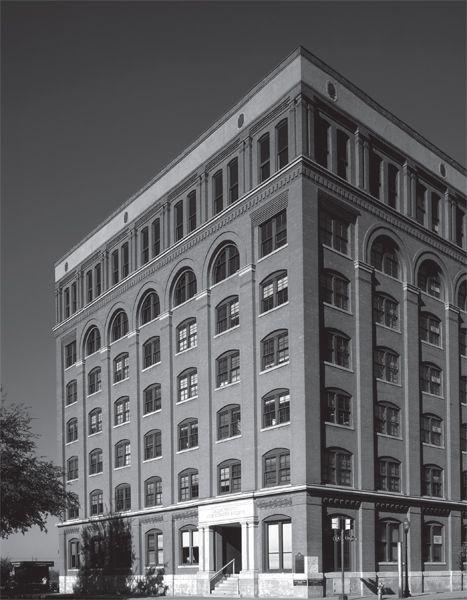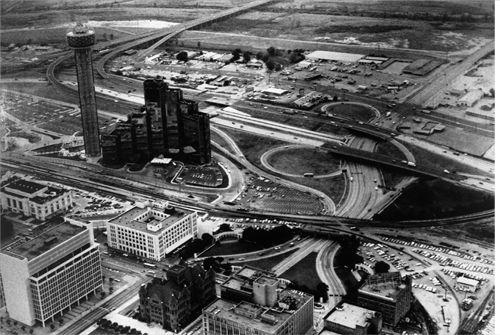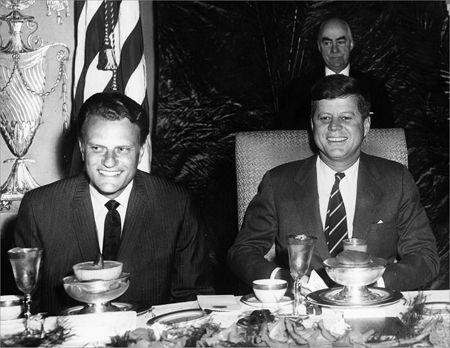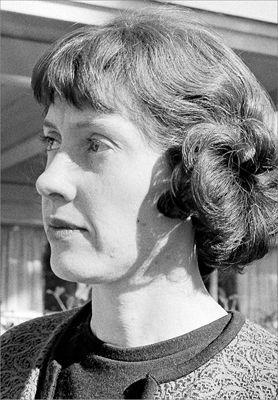Kennedy's Last Days: The Assassination That Defined a Generation (21 page)
Read Kennedy's Last Days: The Assassination That Defined a Generation Online
Authors: Bill O'Reilly
At 2:00
A.M.
on the morning of September 27, Lee Harvey Oswald changes buses in Houston. When he arrives in Mexico City at 10:00
A.M.
, Oswald checks in at the Hotel del Comercio, just four blocks from the bus station, at a rate of $1.28 per night. And though exhausted after the grueling 20-hour bus ride, he walks immediately to the Cuban embassy.
Four months. Four long months. That’s how long it will take for Lee Harvey Oswald to obtain a Soviet visa, which it turns out he needs before Cuban officials will grant him travel documents.
Oswald doesn’t have enough money to wait four months. He needs to go to Cuba now.
And so he stands toe-to-toe with consul Eusebio Azcue at the Cuban consulate in Mexico City, arguing with him over the Soviet visa. Finally, Azcue has had enough, and he speaks candidly with the American. “A person like you,” Azcue tells Oswald in fractured English, “in the place of aiding the Cuban Revolution, are doing it harm.”
Azcue concludes by telling Oswald that he will never get the paperwork to enter Cuba.
The consul turns back to his office, leaving Oswald crushed. His dream of escaping to Cuba is over. A despondent Oswald spends the weekend in Mexico City, eating local food and taking in a bullfight. But his despair is growing.

The Texas School Book Depository in Dallas, Texas. All Texas public schools use the same textbooks. They were stored and mailed out from here.
[LOC, HS 503-3349]
He then takes the bus back to Dallas, where he rents a room at the YMCA and looks for work. He sheepishly phones Marina at Ruth Paine’s home. She is due to deliver their second baby any day.
Oswald entertains Marina with tales of Mexico, but also admits that his trip was a failure. Marina listens and believes that there is a change for the better in her husband. But she refuses to live with him. So, while looking for work, he phones his wife when he can and sometimes hitchhikes from Dallas out to the Paine residence to see her.
Finally, thanks to a kindly reference from Ruth Paine, he finds a job. It is menial labor for a man with Oswald’s relatively high IQ of 118 and involves nothing more than placing books into boxes for shipping. At 8:00
A.M.
on Wednesday, October 16, Lee Harvey Oswald reports for his first day on the job at the Texas School Book Depository. The seven-floor red-brick Dallas warehouse is located on the corner of Elm and North Houston and overlooks Dealey Plaza.

CHAPTER TWENTY-SIX
NOVEMBER 1963
Dallas, Texas
K
NOWN AS THE
“B
IG
D
,
”
Dallas is a dusty, dry town, miserably hot in the summer and cool in the winter. It is surrounded by some of the most unremarkable scenery in America. It is a hard city, built on business and oil, and driven by just one thing: money.

Downtown Dallas. Reunion Tower rises above the city. The low, curved colonnade is in Dealey Plaza.
[© Corbis]
Fifty years from now, Dallas will be a cosmopolitan metropolis, home to a diverse population and a wide range of multinational corporations. But in 1963, the population of 747,000 is overwhelmingly white, 97 percent Protestant, and growing larger and more conservative by the day as newcomers flood in from rural Texas and Louisiana.

Reverend Billy Graham was seated next to President Kennedy at a prayer breakfast in the Mayflower Hotel in Washington, D.C., in 1961.
[JFK Presidential Library and Museum]
But most of all, Dallas is a city that does not trust outsiders or their political views, particularly those of liberal Yankees. John Kennedy has heard many negative reports about Dallas. Trusted friends are warning him to cancel this leg of his Texas trip. Senator J. William Fulbright of Arkansas confided to John Kennedy that he was physically afraid of entering Dallas, calling it “a very dangerous place.”
“I wouldn’t go there,” he told JFK. “Don’t you go.”
Evangelist Billy Graham also warns the president to stay away. Texas congressman Ralph Yarborough’s two brothers live and work in Dallas, and both make a point of telling him that the city hates Kennedy. And in early November, Byron Skelton of the Texas Democratic National Committee will have a premonition that JFK may be placing himself in grave danger by coming to Dallas. Skelton will repeatedly warn the president to stay away.
But John Kennedy is the president of the United States of America—all of them. There should be no place in this vast country where he has to be afraid to visit.
JFK has decided to visit Big D. There is no backing down.
CHAPTER TWENTY-SEVEN
NOVEMBER 1, 1963
Irving, Texas 2:30
P.M.
I
T IS
F
RIDAY AFTERNOON, AND A WEARY
James Hosty Jr. rings the bell at Ruth Paine’s home. The burly 39-year-old FBI agent has spent the day investigating cases in nearby Fort Worth. He is juggling almost 40 investigations right now, taking small bites out of each one. But any case involving J. Edgar Hoover’s battle against communism gets top priority, which is why Hosty is stopping at Mrs. Paine’s rather than driving straight back into Dallas to start his weekend. The agent is looking for Lee Harvey Oswald. The bureau has received a tip from the CIA about Oswald’s visit to the Cuban embassy in Mexico City in September, and agents are now anxious to find him.
Mrs. Paine opens the door. Hosty flashes his badge, explaining that he’s a special agent of the FBI, and asks if they can talk.
Mrs. Paine is cordial to James Hosty. She invites him inside and says that this is the first time she’s ever met an FBI agent.
Special Agent Hosty is the FBI’s expert on Lee and Marina Oswald. Back in March, he opened a file on Marina in order to keep tabs on the Soviet citizen. Later that month, he requested that Lee’s file be reopened due to Oswald’s obvious communist sympathies. The agent has tracked the Oswalds from apartment to apartment, from Dallas to New Orleans and back again. But now the trail has grown cold.
Hosty asks Ruth Paine if she knows where he can find the man.

Ruth Paine. This photo was taken on December 5, 1963.
[© Associated Press]
Paine acknowledges that Marina and her two girls live in her home. After a moment’s hesitation, she admits that she doesn’t know where Oswald lives, though she does know that he works at the Texas School Book Depository in downtown Dallas. Paine gets a phone book and looks up the address: 411 Elm Street.
Hosty writes all this down.
CHAPTER TWENTY-EIGHT
NOVEMBER 4, 1963
Washington, D.C.
S
PECIAL
A
GENT
W
INSTON
G
.
L
AWSON
of the Secret Service’s White House detail is informed of the president’s upcoming trip to Dallas.
Lawson, a Korean War veteran in his early 30s, specializes in planning Kennedy’s official travels. As with all such visits, his primary responsibilities are to identify individuals who might be a threat to the president, take action against anyone considered to be such a threat, and plan security for the president’s appearances and motorcade route.
There is still debate about whether there is to be a motorcade through downtown Dallas. Lawson knows that Dallas is a security nightmare because of the more than 20,000 windows lining the city’s major streets. The more windows, the more places to hide a gunman aiming at the president’s limousine.
But Lawson temporarily sets that question aside. He begins his investigation of potential threats by combing through the Secret Service’s Protective Research Section (PRS). These files list all individuals who have threatened the president or are potentially dangerous to him. A check of the PRS on November 8 by Lawson reveals that there are no potentially dangerous people in the Dallas area.
